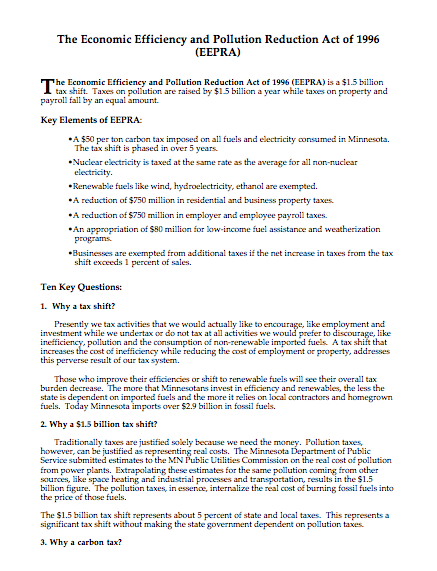The Dark Side of Privatization
by David Morris
January 30, 1996
From Virginia to California, privatization is in. Roads, prisons, fire departments, water departments, emergency medical services, health services, parks, landfills, schools. Virtually every institution and service in America is being handed over to private firms. We used to walk down a public sidewalk to shop. Now we use private walkways in covered malls.
Privateers argue that privatization brings lower costs and higher efficiencies. The evidence is mixed. In many areas, public firms are very competitive with private firms. Municipally owned electric utilities, for example, may be even more efficient than investor owned utilities. In Indianapolis, where public workers compete against private firms for city contracts, in a majority of cases the public workers have been the victors.
Privateers offer many examples of where private firms provide services cheaper. The University of Minnesota, for instance, saved $433,000 when it closed its own laundry and sent its laundry to a private firm in Superior, Wisconsin.
But much of the U of M’s savings, as is true of many privatization efforts, results from the lower wages paid by the private laundry. Annual salaries at the University laundry started at $17,000 and topped out at $27,000. The University told City Pages that those wage levels were “out of whack with the market…the kind of thing the taxpayers go crazy about.” Apparently, the University believes that Minnesota taxpayers will go berserk if asked to pay livable wages to the people who provide public services.
“(P)rivatization is fine if it will save taxpayers by improving service, efficiency or productivity”, writes Cindy Richards of the editorial board of the Chicago Sun Times. “But if outside contractors do the job cheaper only because they pay their workers less, they don’t deserve our tax dollars.” Chicago has debated an ordinance that requires private contractors to pay wages comparable to those paid to the city employees they would replace. That would guarantee that any savings derive from service improvements.
Almost 100 percent of the privatization debate revolves around a discussion of dollars and cents. That is unfortunate. There is a lot more at stake here. We should discuss privatization’s impact on democracy as well as efficiency.
Private firms are not subject to the same rules as public firms. After the public outrage about the killings at Ruby Ridge, the federal government issued orders restraining the use of lethal force on escaping prisoners. The private contractors who increasingly guard our prisoners declared themselves immune from the will of the people. “The Federal rules don’t apply to us…”, insists Warden John Glutch of the private Eloy Detention Center in Arizona.
People discovered several years ago that a mall is a private space where the Constitution doesn’t reach. Mall owners can treat their corridors and benches and playgrounds as they do their living rooms and allow only those kinds of political expression they personally support. Elected officials who oversee the town square, on the other hand, must allow for free speech by everyone.
In some places, privateers are literally reinventing government in their own image. Hundreds of cities have created private governments to manage their downtowns. These business improvement districts have the authority to impose taxes and provide services like security and sanitation, just like traditional governments. But these governments do not comply with the Supreme Court’s one man one vote decision. Instead, they define citizenship in a manner that should send tremors of delight up the spine of every self-respecting privateer: one dollar one vote. Landowners who pay 51 percent of the taxes in that district possess 51 percent of the voting power. In some business areas as few as two people might be able to legally govern their communities.
G.K. Chesterton may have had it right, “The poor have sometimes objected to being governed badly. The rich have always objected to being governed at all.”
Increasingly, privatization is used as a way to avoid the voters. State highway officials in California are firmly convinced that the state needs more roads. But they have been unable to persuade the good citizens of that state to vote for increased gas taxes. In a democracy that would mean no more roads. In a privocracy, the state contracts with a private firm to build a toll road. Let the marketplace decide, cry the privateers.
In the case of the new privately owned highway outside of Riverside, if sufficient numbers of commuters are willing to pay at least $2.50 to save 25 minutes, the toll road will be a financial success and we should fully expect many more to be built. The wealthier car owning commuter will make the decision about whether and where to build roads, not the general voter.
“(P)rivatization diminishes the public sphere-the sphere of public information, deliberation and accountability”, says Princeton Professor Paul Starr. Yet our rush to privatize is occurring without any extended public debate about these issues. What does privatization do to our sense of community? How does it redefine our concept of citizenship? Is it compatible with our desire to enable all workers to earn a livable wage? These are the questions we need to ask. And answer.



